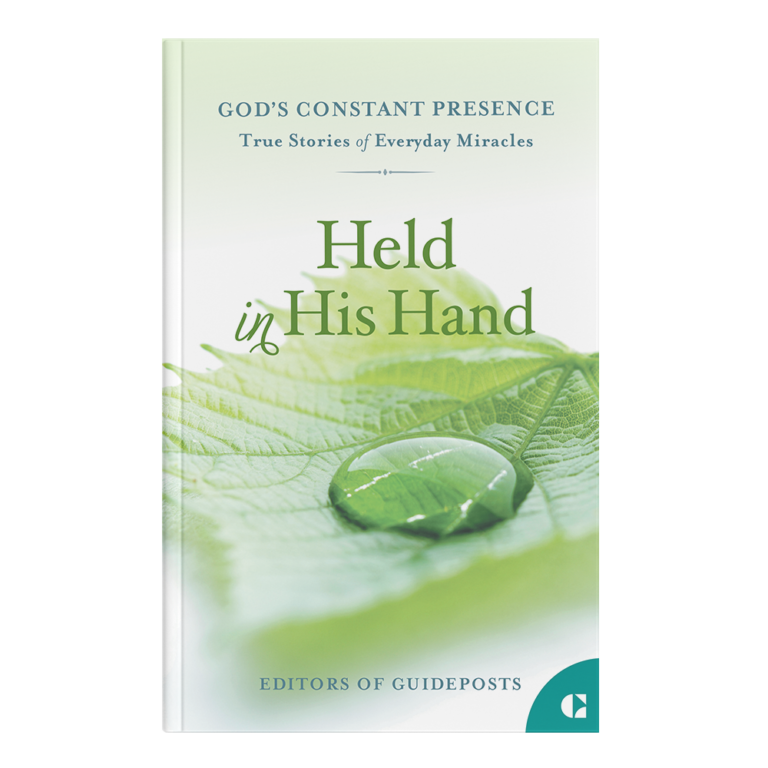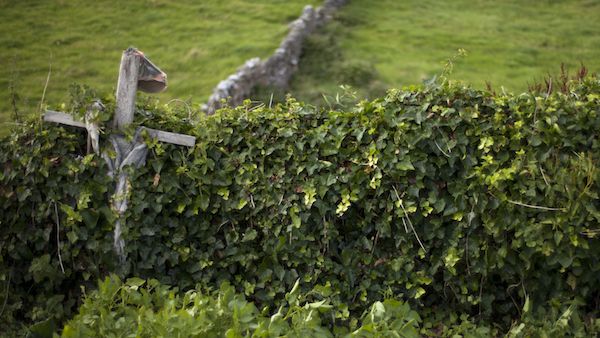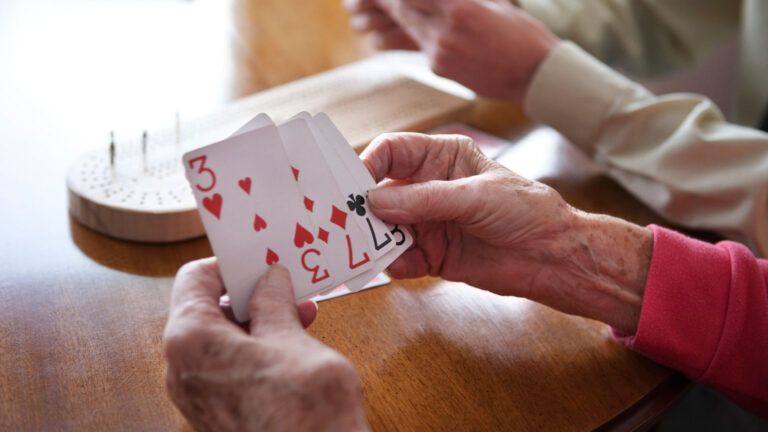I cast a wary sailor’s eye at the clearing sky. Thunderstorms had battered the sea around Port Sidney, British Columbia, since early afternoon, whitecaps frothing like peaks of meringue. Normally I would have waited out the weather a day, before taking my 36-and-a-half-foot boat, Esperance, the 41 miles back to Point Roberts, Washington. I’d sailed down here for a dinner with friends the night before. Now I was due back at work. I’m a Boeing 767 captain for Air Canada, and I had a schedule to keep.
I phoned my wife, Scarlet, from Esperance‘s helm. “The wind and rain have died a bit,” I said. “I’m going to make a run for it.”
“The weather bureau says another storm is headed your way,” Scarlet warned.
“I’ll be careful,” I said, and hung up.
I started Esperance‘s engine. I was better off motoring than trying to sail. I steered her out toward the strait, which separates the United States from British Columbia. Esperance cut through the water, making excellent time. A couple of hours later, by 6 p.m., I was more than halfway home. The weather held. My instincts had been good. I set the boat on autopilot, at six knots, and checked the global positioning navigation program, which would guide Esperance right to Point Roberts. I stripped off my survival suit. The September evening was growing warm, and I was wearing long johns, a fleece jacket, trousers and rubber boots. I sat back and drank in the scenery. The strait is dotted with uninhabited islands, clusters of green that gave the appearance of floating on the water.
But I had work to do. I ducked below deck and stripped the bed, then carried the linen up to the stern deck so I could monitor the course while I folded it. The boat rocked gently. Arms full, I spread my legs and braced my left knee against a cable that circles the boat like a handrail and is held in place by simple clasps. I must have forgotten to check the clasps in my haste to set sail. One flew open. The cable gave way. My knees buckled. I tried to grab hold of something, anything. Laundry scattered. My hands clutched at air. I plunged backward over the side.
I went under the icy water. As I surfaced, gasping for air, I screamed, “No,” and lunged for Esperance. But she had already moved out of reach, still set on autopilot. Don’t panic. I tried to get my bearings, but I’d lost my glasses. Blearily I could detect the dim lights of Point Roberts seven miles away. Mayne Island, the nearest land, was five miles.
Five miles. I took a deep breath. September 6, 2003. Is that what my death certificate will say? My gravestone? I shook my head, as if I could throw the thought off. I thought of Scarlet.
My jacket and boots were pulling me under. I took them off. My stomach was already cramping from the cold. Too painful to do the crawl. Breaststroke, then. I turned toward Mayne Island and kicked. I could barely move my legs, my trousers were so waterlogged. Of course.
An old lifeguard trick: I pulled off my pants, tied each leg into a knot, then laid the trousers out on the water with the waist facing me. I swept the pants in an arc over my head to fill them with air. I cinched the waist. Only one leg inflated. I checked the other. There was a hole at the knee. For crying out loud!
But the one inflated pant leg gave me just enough buoyancy to keep my head above water. Esperance was almost out of sight. Would it run aground and alert people to my plight? Would it be too late?
Only my right hand was free to swim. Luckily, the waves were barely ripples. Every few minutes I flipped onto my back and reinflated the pant leg. Keep moving.
The sun dropped in the sky. The lights on Mayne Island looked no closer. Swimming? Pointless. Another hour or so and hypothermia would set in. Then it wouldn’t matter.
Let me not sink. Let me be delivered out of deep waters.
The Psalmist’s words came to me as clearly as if I’d heard them said aloud, followed by an inner voice. Look around you, it said. When have you seen the Georgia Strait so calm? It was true, the water was as smooth as I had ever seen it.
I took stock. I knew two things for sure: God could save me even in this hopeless predicament, and that no matter what, I couldn’t go without a fight. I corkscrewed onto my stomach and brought my arm through the water again. Swim, Dave.
I swam for an hour before stopping, breathless. Not so much out of breath, but just too tired to breathe. I rolled onto my back. Scarlet. My son, Alexander, my daughter, Rachel. Do they know yet? A sense of finality came over me.
Swim!
I stroked the water furiously. Fight! By now I had been at it for what, two, three hours? I couldn’t feel my arms or legs. I imagined my epitaph: David Zaharik. Loving husband and father. Lousy sailor. I laughed weakly. “Sweet Jesus, I could sure use your help about now!”
What was that? A sound. In the distance—waves hitting the shore. Was I hallucinating? Lord, please make it true! I forced my limbs to churn the water. Stroke. Kick. Every last bit of strength. Something massive was ahead of me, as dark as the sky. My hands smacked against something solid. “Land!” I gasped.
I stopped and looked straight up at a cliff. I couldn’t tell how high it was. I would never make it. I’d spent every bit of strength I had. No. God can save me, and I’m not going without a fight.
I threw my pants over a shoulder, raised one arm out of the water and felt for a crevice. I’d never climbed rock, but I had no choice. I sank my fingers in as deep as they would go. I hauled my body out of the water. I found more handholds, pulled, then dug my feet into the damp, briny wall of rock. Progress.
But slow. One mistake and it would be over, all my struggles for naught. I dragged myself upward, rock scraping skin. I shivered violently with the slightest breeze. My fingers were raw and aching. Finally the crest. I collapsed.
Help was just a few miles away. Rest, my body told me. But I knew if I fell asleep out here, I would die.
Call upon me in the day of trouble. I will deliver thee. Psalms again.
I tore open the knots I had tied in my trousers and pulled them on. Then I tried to stand. My legs were so numb, I slid across the slippery rock. I grabbed at an outcropping. Gashed my left palm, but at least I stopped sliding. Get up! I tried again to stand. No go. So I crawled. Over rocks, crevices, shrubs. It was the only way.
There was no moon, no light. Heavy cloud cover turned the night pitch-black. I felt my way through the brush until I came to a precipice. Below me was an inlet, perhaps 100 feet wide. I could hear the sea below. A huge log spanned the inlet. I reached for it. It was slick with seaweed. I lost my balance. I hurtled over the cliff, down, down, 12 feet until I was in the cold water again, gasping for air. I swam back to the cliff. Scaled it inch by inch. Crawled back to the log, straddled it and painstakingly pulled my way across.
On the other side the terrain changed to forest. Beyond that, the lights I’d seen from the sea. I staggered to my feet. A few minutes later I slammed into something, a nine-foot-high cyclone fence with barbed wire on top. To the left, the fence ran as far as I could see. To the right, it made a 90-degree turn and extended to a rocky precipice overlooking the sea. I followed the fence to the cliff. I looked down at the ocean, 80 feet below. It was as if the sea were doing everything it could to claim me. Quickly I swung out over the abyss and along onto the other side of the fence.
Up an embankment and onto the front porch of a house. No one was home. I went to the next house, and the next. By the fourth house I was cold, filthy, wet, too weak to call out for help. I rang the doorbell. Please, God, you brought me this far. The door swung open.
“Good grief,” said the man who answered. “You must be the fellow they’re looking for.”
Minutes later I was in an ambulance. A tanker had spotted the crewless Esperance motoring toward Point Roberts and had alerted the Canadian Coast Guard. Guardsmen boarded my boat and anchored her safely. A search was begun, but no one felt hopeful. The Royal Canadian Mounted Police told my family they’d do everything humanly possible to find me.
It took more than that, though. From the moment I fell into the water, each time my strength failed, something renewed it. Each time I thought I was done for, something told me, Not yet. Not something, Someone, who wasn’t testing the limits of survival but was showing me how he could take me beyond them, drawing me with each stroke, each step, closer to safety, closer to him.





